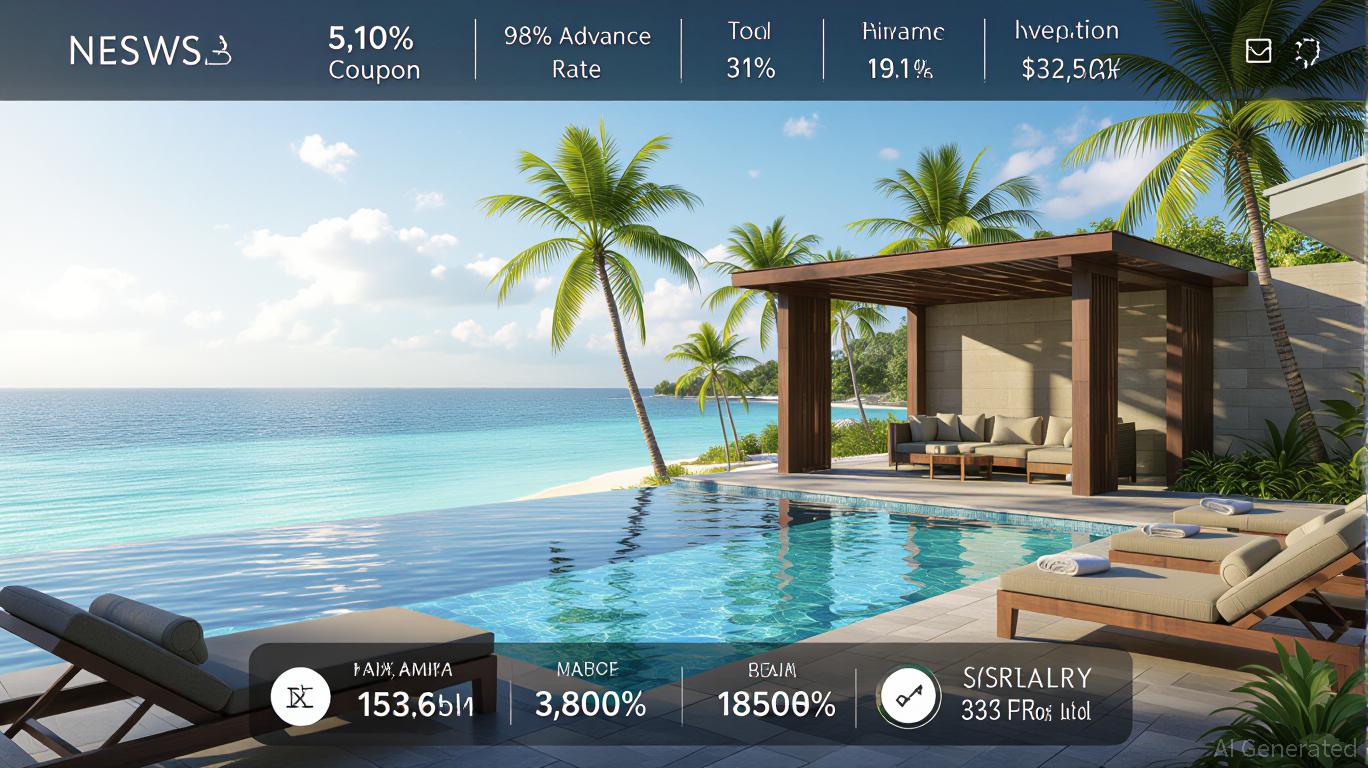
In the post-pandemic era, the leisure and travel sector has emerged as one of the most resilient and rapidly expanding industries. As global demand for experiential spending rebounds, companies with robust cash flow generation and asset-backed financing capabilities are poised to outperform peers. Travel + Leisure Co. (NYSE: TNL) has made a bold strategic move with its $300 million securitization in July 2025, leveraging its vacation ownership and travel club receivables to secure favorable capital terms while reinforcing its liquidity position. This transaction, executed through its indirect subsidiary Sierra Timeshare 2025-2 Receivables Funding LLC, offers a masterclass in optimizing capital costs and maintaining competitive agility in a sector where flexibility is paramount.
The Mechanics of the Securitization: A Layered Approach to Risk and Reward
The $300 million securitization was structured into four tranches of asset-backed notes, each with distinct risk-return profiles:
– Class A: $143 million at 4.72%
– Class B: $67 million at 4.93%
– Class C: $59 million at 5.32%
– Class D: $31 million at 6.79%
The weighted average coupon of 5.10%—the lowest achieved by TNL since early 2022—reflects strong investor demand and confidence in the quality of the collateral assets. These are primarily receivables from TNL’s vacation ownership and membership travel operations, which generate recurring revenue streams from over six million travelers annually. The 98% advance rate (the ratio of the securitization amount to the collateral value) further underscores the stability of these cash flows, as it leaves ample room to absorb minor fluctuations in demand without jeopardizing the structure.
By segmenting the notes into multiple classes, TNL has effectively balanced risk across its capital structure. Lower-risk tranches (Class A and B) offer conservative yields to attract institutional investors, while higher-risk tranches (Class D) provide elevated returns to capitalize on the sector’s growth potential. This layered approach not only minimizes the overall cost of capital but also aligns with the risk appetite of diverse investor bases, a critical advantage in today’s volatile markets.
Strategic Implications: Liquidity, Cost Optimization, and Competitive Positioning
The securitization is more than a liquidity event—it’s a calculated step to strengthen TNL’s competitive positioning. By accessing capital at a 5.10% all-in coupon, the company has secured one of the most favorable financing terms in its history, even as global interest rates remain elevated. This cost efficiency allows TNL to reinvest in high-margin segments of its business, such as expanding its vacation ownership inventory or enhancing digital platforms for travel club members.
Moreover, the transaction highlights TNL’s ability to monetize its core assets (recurring receivables) without diluting equity or over-leveraging its balance sheet. This is particularly valuable in the leisure sector, where companies with asset-light models and strong cash flow visibility are increasingly favored by investors. TNL’s current ratio of 4.04 (as of 2025) and its consistent track record of securitization success (notably the March 2025 $350 million transaction at 5.20%) reinforce its credibility as a reliable counterparty in capital markets.
A Post-Pandemic Playbook: Why TNL’s Strategy Matters
The leisure sector’s post-pandemic recovery has been driven by two key trends: 1) a surge in discretionary spending on travel and experiential services, and 2) a shift toward asset-backed financing models that prioritize cash flow predictability. TNL’s securitization aligns perfectly with these dynamics.
For instance, the company’s vacation ownership business—anchored by brands like Timeshare and Travel + Leisure—benefits from long-term customer relationships and predictable revenue streams. These characteristics make the underlying receivables highly attractive to investors seeking stable returns in an uncertain macroeconomic environment. By packaging these assets into securitized debt, TNL not only secures cheaper financing but also insulates itself from interest rate volatility to some extent, as the terms are locked in for the life of the notes.
Investment Thesis: A High-Yield, Low-Risk Opportunity
For investors, TNL’s securitization signals a company that is proactive in managing its capital structure while capitalizing on its sector’s growth tailwinds. The transaction’s success suggests that TNL’s underlying business model is robust, with strong demand for its services and the ability to secure financing at favorable rates.
Given the company’s strategic use of asset-backed structures, its strong liquidity position, and the growing demand for leisure travel, TNL represents a compelling long-term investment. Investors should monitor the company’s future securitization activities and its ability to deploy the raised capital into high-ROI projects. Additionally, tracking the performance of the notes (particularly Class D, with its 6.79% coupon) could provide insights into market sentiment toward the sector’s risk profile.
Conclusion: A Model for Sector Leadership
Travel + Leisure Co.’s $300 million securitization is a textbook example of how to leverage asset-backed structures to optimize capital costs and strengthen competitive positioning. In a sector where liquidity and flexibility are paramount, TNL’s ability to secure favorable terms at a time of elevated interest rates is a testament to its operational and financial discipline. As the leisure industry continues its post-pandemic ascent, companies like TNL that can efficiently monetize their cash flow assets will likely outperform peers—and investors who recognize this early will be well-positioned to capitalize on the sector’s momentum.




